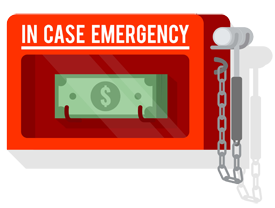Discover 5 Tips for Staying on Track Financially When Leaving the Military. There are many changes for veterans as they conform back into civilian life, learn about available benefits.
Leaving the military is a major transition in more ways than one. Not only do young veterans need to learn to apply their military skills to a civilian job. They also face higher living expenses and lower job security than they enjoyed in the service.
If you’re a young veteran wondering how you can stay financially afloat in civilian life. These tips will help you make good financial decisions after leaving the service.
Know your benefits
Veterans who leave the military before 20 years don’t receive a pension. However, that doesn’t mean young veterans can’t access other valuable military benefits.
Discharged veterans who want to purchase a home can look to VA loans to receive lower interest rates and more lenient lending standards than offered through conventional mortgages.
You can also use your military benefits to go back to school. The Post-9/11 GI Bill covers tuition and fees for in-state public universities for qualified veterans. If you’re attending a private or out-of-state school, you can receive additional funds under the Yellow Ribbon Program if you meet the 100% benefit level of the GI Bill.
Prepare for higher living expenses
Veterans face a lot more expenses in civilian life than they did while in the service. Housing costs, insurance premiums, and taxes are all a bigger part of your budget as a civilian. Make sure you’re taking these costs into account when negotiating salary requirements for your first civilian job and using a budget to track where your money is going. You may need to adjust spending on entertainment and other luxuries to keep your budget in check.
Use your military discount
Many businesses offer discounts to active duty military and veterans. Home Depot and Penske Truck Rental are two of the most well-known businesses that offer veteran discounts. However, military discounts can be found at a wide range of businesses. Additionally, many providers offer a veteran’s discount for wireless plans.
You can also find deals on newly released smartphones when you sign up for a new plan. And many insurance companies also offer discounts to veterans, and you can save further if you insure multiple cars and have a clean driving record. If you’re uncomfortable asking about military discounts, research online to learn which businesses offer discounts before you shop.
Consider your insurance options
Veterans lose Service-members’ Group Life Insurance (SGLI) coverage when leaving the military. Veterans can continue their life insurance policy under the Veterans Group Life Insurance program, but for young, healthy veterans, it’s typically more economical to buy a term life insurance policy. Life insurance is a must for vets with children, but even veterans without dependents benefit from a modest policy.
Veterans who receive group health insurance coverage from an employer should count themselves lucky., Plans typically offer the best coverage at the lower rates for civilians. However, out-of-pocket prices for premiums, deductibles, and co-insurances and co-payments are still much higher than TRICARE’s. Veterans who don’t have healthcare through an employer will need to purchase coverage through the healthcare marketplace. Depending on income, you may qualify for a tax credit.
Save an emergency fund
 Ideally, service members should start saving in preparation for their departure from the military well before their discharge date. The civilian workforce offers a lot less job stability than the military.
Ideally, service members should start saving in preparation for their departure from the military well before their discharge date. The civilian workforce offers a lot less job stability than the military.
It’s important to be prepared, if it takes longer than expected to find a job or the first job doesn’t work out. Most experts recommend saving three to six months of expenses in an emergency fund, but if you don’t have a job lined up, consider saving enough to cover six months to a year.
Civilian life can be a financial shock to newly discharged veterans. However, with careful planning, young veterans can navigate this life transition without putting their financial security at risk.



Thank you for your sharing. I am worried that I lack creative ideas. It is your article that makes me full of hope. Thank you. But, I have a question, can you help me?